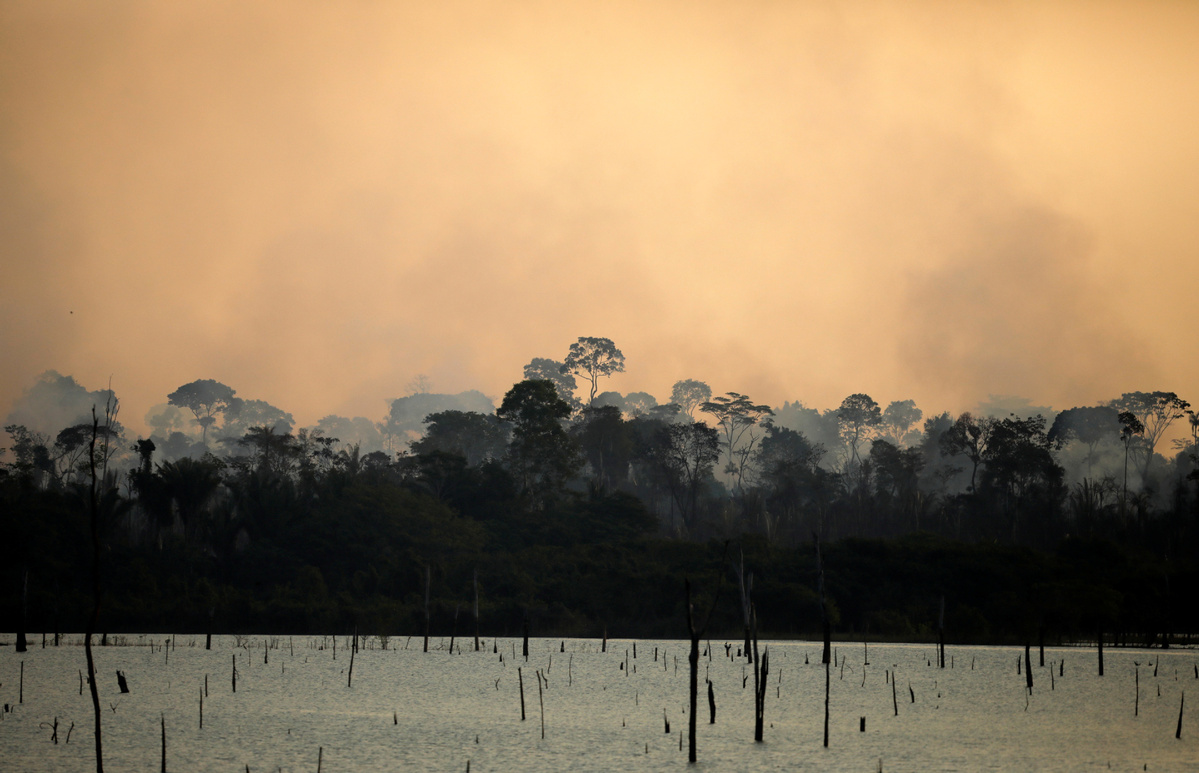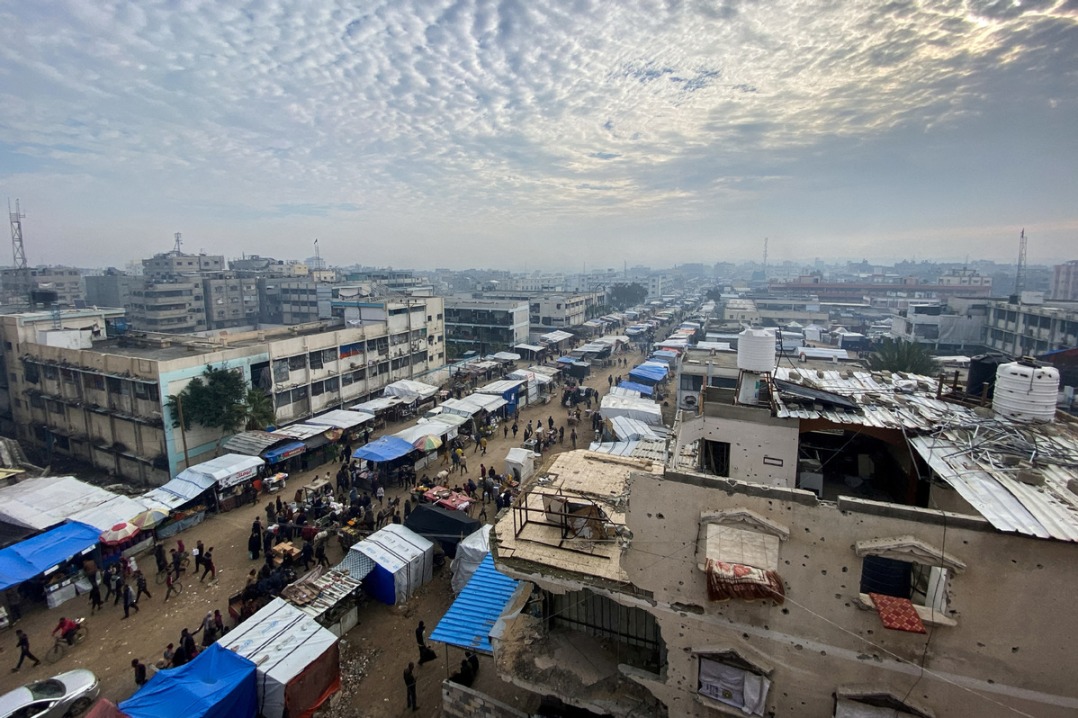Protection of Amazon is indispensable


As the rainforests of the Amazon burned months ago, the world came together and the calls for action to protect the "lungs of the world" grew loud.
But very little of substance happened. The recent brazen shooting of a couple of forest "protectors" by illegal loggers shows how entrenched the problems are.
The number of fires burning throughout the Amazon spiked this year, and the efforts to put out those fires, many of which are ongoing, trended on social media, ruled political debate for a few news cycles, dominated discussions at the G7 summit, and triggered a diplomatic conflict between Brazil and France.
As firefighters were dying in Bolivia and new blazes appeared in Brazil, regional leaders signed an agreement to protect the rainforest, particularly from burning and illegal logging.
The Leticia agreement, named after the Colombian city where leaders of seven Amazonian countries signed it on Sept 6, has yielded limited effect. Illegal loggers, illegal miners and drug traffickers are doing what they please across the rainforest. The problems stretch beyond Brazil and to neighboring Colombia, which is suffering the social and environmental consequences of chemical precursors used for cocaine production and illegal gold mining in rainforest lands cleared by fire.
Meanwhile, the crisis in the Amazon rainforest, which spans nine countries, is about to reach a tipping point, according to experts. The dry season is almost over, but illegal logging, illegal mining, drug trafficking and the uncontrolled expansion of the agricultural frontier continue, leaving dead fauna, flora-and people-in their wake.
Illegal loggers in the rainforest in Brazil are notoriously brazen. When faced with indigenous groups working to protect those forests, they usually shoot first and ask for permission afterward. That is what happened to Paulo Paulino, an indigenous self-proclaimed guardian of the Amazon and member of the Guajajara tribe, which lives throughout the rainforests of Arariboia, a natural reserve in the heart of Maranhao state. The Guajajaras set up the Guardians of the Forest in 2012 to patrol a vast reservation.
Paulino was a recognized environmental activist who had gone on a hunting trip in the Amazon jungles with a friend named Laercio Souza Silva. They were hunting for food within the limits of the natural reserve that is home to thousands of members of their Guajajara tribe, one of the largest indigenous tribes in Brazil.
But instead of finding prey, Paulino and Silva became prey on Nov 1 of illegal loggers who make a living from the wood that the Amazon provides. Paulino was shot and killed. Silva was badly injured but managed to escape the bloody ambush.
Their story might have been just one more among the hundreds published by local media across Latin America in which deaths related to the control of territories are recorded. But this ambush was different. Behind the deaths of Paulino and several of his fellow indigenous sentinels before him lies the agony of the Amazon.
The deforestation affects only a relatively small part of the Amazon each year, but the effects are cumulative and synergistic. Research by the National Institute of Amazonian Research in Brazil bears this out.
Next year, when the dry season returns, the fires may be as large or even larger and fiercer than the ones recorded this year.
The government of Brazilian President Jair Bolsonaro has committed to stopping and prosecuting illegal loggers. Sergio Moro, Brazil's minister of justice, said the government will spare no effort in bringing Paulino's killers to justice.
But just like those who killed Paulino and his fellow forest guardians, there are hundreds of environmental criminals in the Latin American jungles willing to kill indigenous people and activists in order to protect the lucrative timber business.
According to Interpol, the illegal trade of timber is worth between $51 billion and $152 billion per year. Their figures show that illegal logging is responsible for about 15 to 30 percent of global timber production.
Such a lucrative activity spreads money to many, even to those who are supposed to enforce the law and protect the environment. Interpol's figure on corruption related to forestry crimes is an estimated $29 billion per year.
Fighting illegal logging is not only a matter of prosecuting illegal loggers in the Amazon. There are vast networks of illegal loggers that span the globe. Dismantling them requires a global effort.
It was due in part to the collaboration of the Chinese authorities that Operation Amazonas was a success five years ago, leading to the seizure of more than 15,000 cubic meters of illegal timber and two vessels used for transporting it.
The protection of the "lung of the world" is indispensable, not only for the maintenance of all the biodiversity of South America, but also for the well-being of millions of people around the world.
Success will depend on fighting illegal logging, but also on fighting the crimes and corruption that surround it.
The author, based in Bogota, Colombia, is a lawyer and a director at editorial consultancy Bahati Ltd. The views do not necessarily reflect those of China Daily.
































